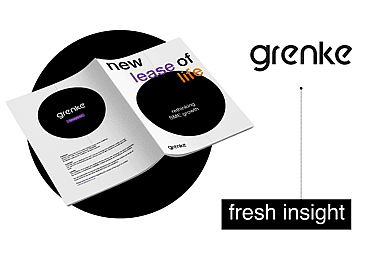During the latter half of 2023, the government announced a series of measures to help fix the problem of late invoice payments. Business owners were being forced to wait nearly eight weeks to be paid, with on average invoices being paid at 54.1 days, up to 7% up on previous years. Tackling the issue of unpaid invoices will be vital to allow small businesses to continue trading and grow their enterprises, ultimately leading to the growth of the UK economy.
The problem for SMEs isn’t just the slow pace, but the capital that is fixed in late invoice payments. Research by analysts Dun & Bradstreet has found that the average SME in the UK is owed £147,141 in late payments. In 2022 that figure was just over £130,000 while as recently as 2017 it was just under £64,000.
Business owners are considering extreme measures to stabilise, financial loans and redundancies, to name a few. With lots of cash flowing out, and not much coming in, an SME may be unable to demonstrate to lenders a clear and consistent cash flow, leaving the options to access affordable finance limited.
The time, energy and resources drained on chasing unpaid invoices that could be redirected to growth and sales, leaves SMEs unable to focus on the important revenue driving activities.
Government action
In October 2023, the government announced three new measures to tackle late invoice payments. It did this because it has gauged that paying SMEs on time could boost the economy by £2.5 million each year. These measures are to be included in a wider government review on Cash Flow and Prompt Payment.
- Extending the Reporting on Payment Practices and Performance Regulations 2017. Essentially the government will legislate to extend payment performance reporting obligations. It will introduce new metrics for reporting, including invoices paid late.
- Providing more advice to SMEs on negotiating payment terms. It will also offer advice on how going digital can help firms get paid quicker.
- Extending the powers of the Small Business Commissioner. The Commissioner will be able to undertake investigations and publish reports on the basis of anonymous information and intelligence. This will require primary legislation, so may take some time to become law.
The government will also strengthen the Prompt Payment Code so that signatories have to renew their commitment every two years.
No government contracts for late payers
The government also announced in the 2023 Autumn Statement that, from April 2024, any company bidding for a government contract must prove they pay their invoices within an average of 55 days. This will drop to 45 days in April 2025 and to 30 days in subsequent years.
If firms don’t meet these terms, central government will exclude them from bidding for contracts. Similarly, since October 2023, government departments have had to pay their invoices within 30 days.
Help with credit control
While government measures to resolve late invoice payments are welcome, many SMEs will still have to tackle late payments. Unfortunately, most small businesses aren’t large enough to have in-house credit control teams. This can mean that they have limited resources for chasing late payments. If you are in this position, you may wish to consider invoice finance.
Trust in invoice finance
With 2024 a key year to recover and build back stronger, tackling the endemic issue of late payments should be a business priority. Businesses should consider invoice finance with a trusted and stable financial partner.
Gain back crucial cash flow and create a more robust and sustainable accounting process. Invoice finance allows you to sell your invoices and receive immediate cash flow (hence, a cash flow solution).
With grenke, you can access up to 90% of the invoice value in a matter of 24 hours.
Next, our receivables management team seeks payment on the unpaid invoices. The team works professionally and personally with your debtors and aims to secure payment within the set payment terms. Our team make it easy to pay, and offer a reminder process to debtors that require a little nudge.
Once the invoice is paid, you receive the rest of your invoice amount, minus a Fixed Fee agreed and any Variable Fees agreed.
REMINDER: Fixed Fee - % of the invoice, Variable Fee - % per day the money we finance is outstanding.
Speak to a member of our team today, for a full review of the cash flow potential within your business.


